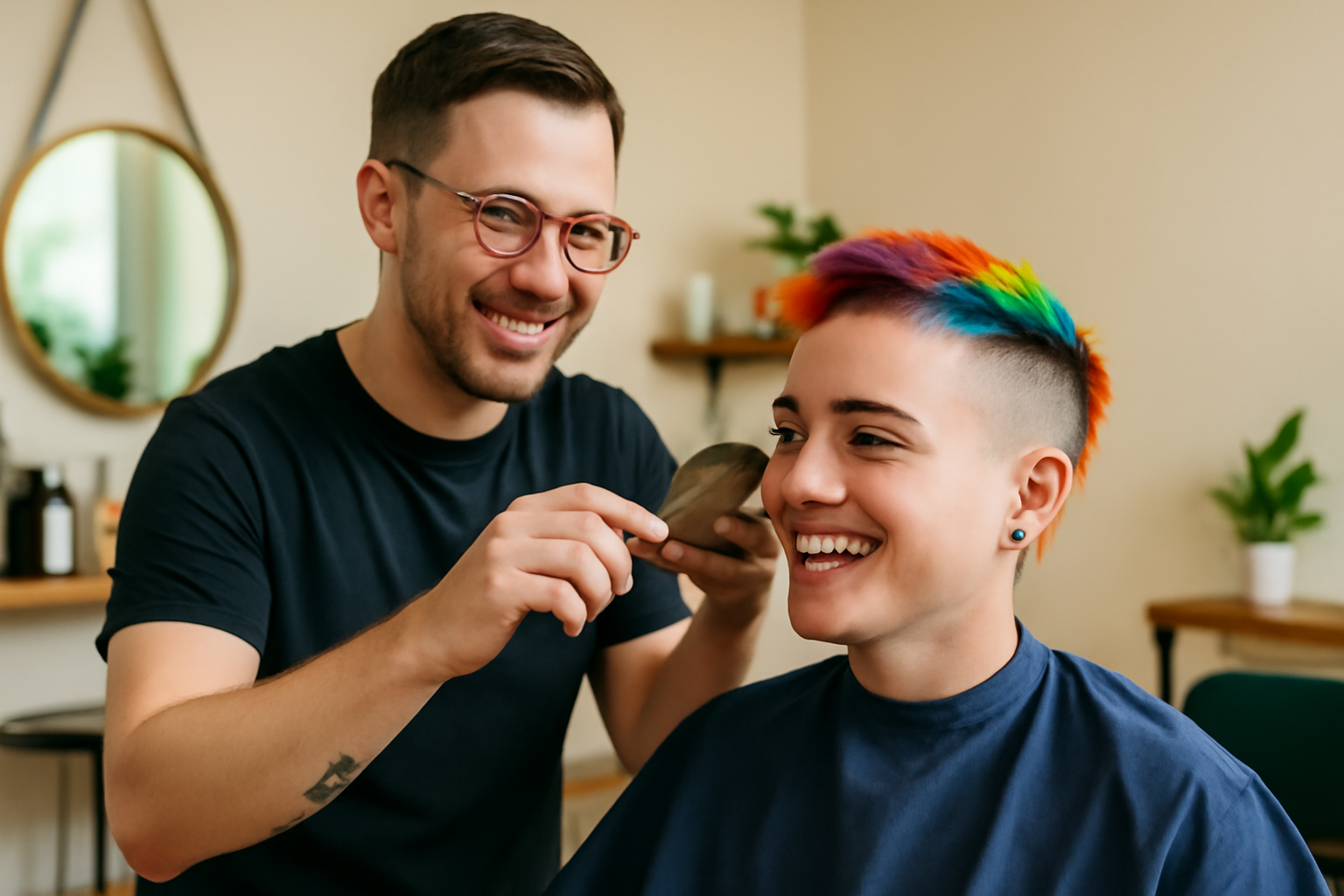
### Breaking barriers: Logan Parlor changes salon norms
At Logan Parlor in Chicago, owner Jamie DiGrazia has completely reimagined what a visit can be. Forget outdated questions based on gender; Jamie simply asks, "How long's your hair and what length are you aiming at?" It's a refreshing twist that dares salons everywhere, questioning industry norms that have long been overlooked.
### Moving away from gendered pricing in salons
Most salons still divide haircuts by "women's" and "men's" styles, a system Jamie finds both inefficient and unfair. Why should a haircut be linked with gender? Logan Parlor takes a bold step by focusing solely on hair length and style preferences. The result? A more inclusive atmosphere that respects everyone's individual style.
### Behind "Hair Has No Gender"
"Everyone should have a safe, affirming salon experience," Jamie passionately believes. At Logan Parlor, they price services based on time, expertise, and products, not gender. With their nonprofit initiative, Hair Has No Gender, Jamie's mission extends beyond one salon—they're pushing hard against gender-based pricing in all hair salons.
### Tackling gender norms and pushing advocacy
Reforming deep-seated beauty industry stereotypes isn't easy. Despite some resistance, Jamie wonders, "Why can't we have a pricing model that benefits everyone?" It's about more than just haircuts. This inclusive vision extends far beyond, advocating even at legislative levels.
### Mobilizing against restrictive legislation
With rising visibility in transgender communities, some backlash tries reinforcing old gender standards. When Arkansas proposed its "Vulnerable Youth Protection Act," threatening those who support minors' gender identities, Jamie sprang Into action. Through viral campaigns under Hair Has No Gender, they rallied against this restrictive law, showing that collective voices can't be silenced.
Although Arkansas ultimately withdrew their bill, Jamie stresses that ongoing vigilance and action are needed. Back home in Illinois, they're tirelessly pushing initiatives like H.B. 5523, aimed at eliminating gender-based pricing in salons, even when faced with roadblocks.
### Promoting inclusive salons and happy clients
Clients crave inclusive atmospheres, and that includes training stylists properly. A haircut might seem trivial, but without understanding clients' identities, stylists might miss out on creating safe spaces, as Jamie has learned from client stories.
Take Emma Marzullo, a happy client at Logan Parlor. "I never realized how much my hair meant until I got a cut that truly felt like me," she reflects. Qadir Muhammad agrees, adding, "Your hair represents you, and when you love it, it feeds your self-esteem."
### Advocacy and action: Catalysts in changing salon culture
Jamie DiGrazia highlights how vital advocacy and community action are in revolutionizing salon culture. By bringing salons and people together, they're crafting an environment where everyone can show their true selves with confidence and pride.
